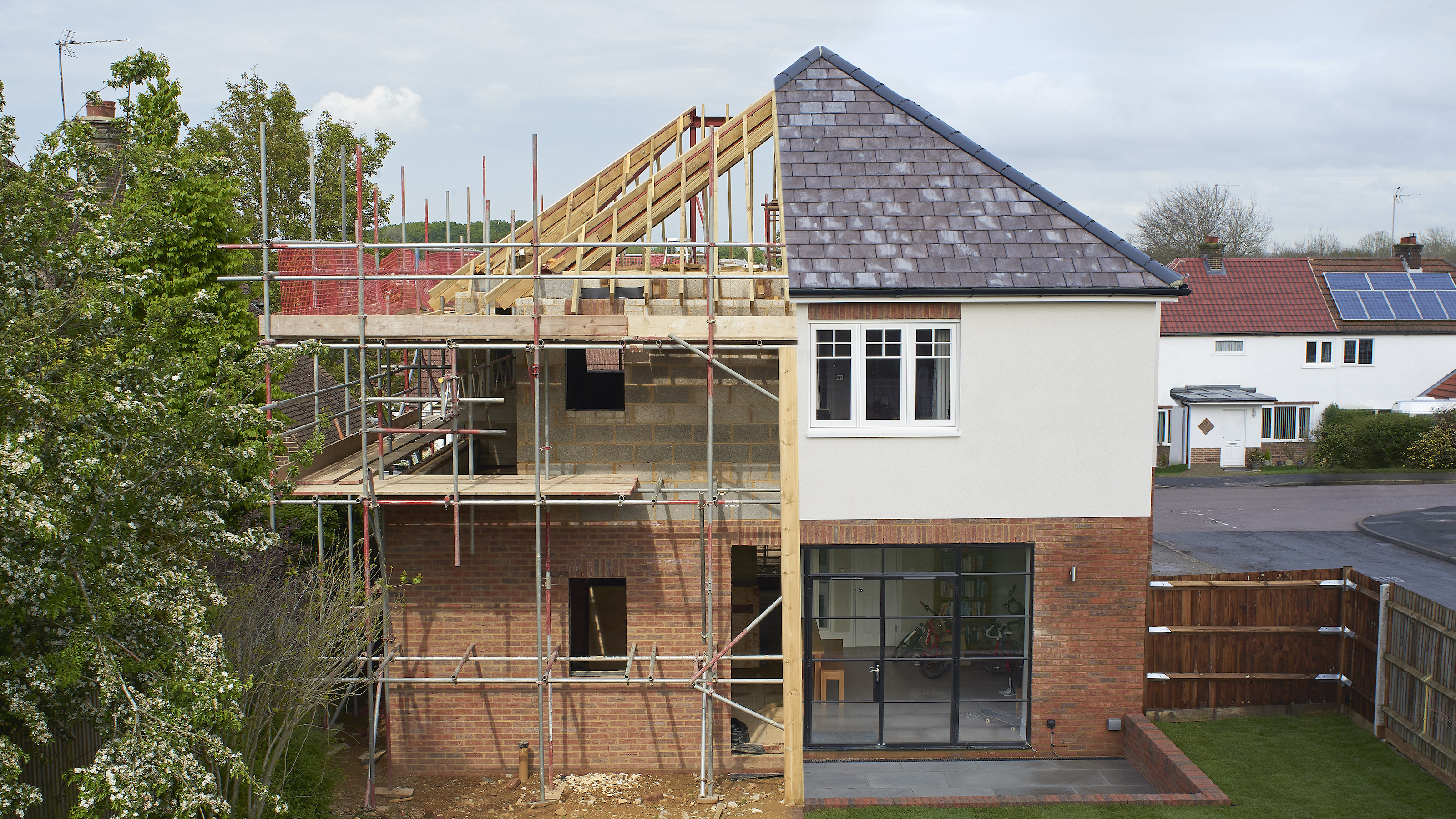How long does planning permission last? Plus, find out how to 'lock in' permission
Wondering 'how long does planning permission last?' is a common question after receiving approval for plans — find what you need to know about expiry dates here

Are you looking at your application and wondering 'how long does planning permission last' and 'what happens if I don't start by the expiry date'? Don't worry we have all of the answers you need concerning planning permission deadlines, start dates and the consequences of not meeting these timelines.
The journey to achievng planning permission on a self build or extension can be straightforward for some and overwhelming and draining for others, depending on the project — many of those who endeavour to go through the process may need a well-needed break afterwards!
Below, we answer frequently asked questions about how long a successful planning permission application lasts and what you need to go to constitute a start date.

James has over 20 years experience working in planning. Currently providing subject matter expertise to support Planning Portal’s transformational agenda and help them meet user needs whilst ensuring legislative compliance for their content and online services.The Planning Portal aims to make information concerning the planning process and services simpler and more accessible for applicants, agents and local authorities.
Does planning permission go out of date?
After a certain amount of time, your approved planning permission application will expire. "Three years is the ‘default’ period in England," says James Garrett from the Planning Portal.
"Situations and places change. Something that may have been permitted in the past may no longer be acceptable for a number of reasons. Having an expiry date ensures that proposals are carried out within a reasonable timeframe, helping to ensure that they remain suitable for their location, based on the relevant factors taken into account when the permission was granted.
"It also ensures that local and national government can plan ahead based on what is expected to be built or take place in any given area."
Generally, it is advised to check the expiry date on a plot of land with planning permission attached for a new home, as the consent might expire before you get a chance to make a suitable start on site, leaving you in to need to reapply. As a worst-case scenario if planning permission is refused, you'll end up with an over-priced parcel of land which can't be built on.
How do you keep planning permission alive?
"Generally, an expiry date cannot extended once put in place, but the period stated in the permission can be longer or shorter based on the specifics of the proposal and its location," advises James Garrett. "If a longer period is needed, it is advisable to discuss this with the local authority in advance.
"Exceptional circumstances (such as the recent pandemic) or changes in legislation can also mean that temporary provisions are put in place to allow deadlines to be extended, but these are usually time limited and restricted to specific situations or certain criteria."
If your application is about to expire, it might be worth making a 'material start' – which we'll explain in more detail below – to your project, meaning the project has officially started within the time frame, effectively locking in planning permission, and development can be paused again if required.
"However, if you need more time to plan effectively, you can reapply to ensure nothing is rushed," adds former planning officer and author of The Planning Game, Ken Dijksman. "There is no longer an option to simply renew planning permission, so you will have to submit a re-application. Bear in mind that you are not guaranteed to get planning consent a second time, and you may be applying against a very different planning policy background three years down the line."
Confer with a planning consultant if you are unsure about what your next step should be.
What does an expiry date mean on a planning application and what constitutes a start date?
"Generally, in regard to planning permission, the project has to have begun before the expiry date," says James Garrett. "Depending on the specifics of the proposal, examples could be breaking ground, clearing the site, the start of an activity or operation, or the first instance of a new use."
Once work has started on a project, the planning permission will last indefinitely, so there will no need to reapply after the expiry date.
"Where it begins but has not been completed before the period expires, a local authority or national government can issue a ‘completion notice’ setting a further deadline for completion if they believe the development is unlikely to complete in a ‘reasonable’ period.
"Currently these are rarely used and have to be agreed by national government, so should not be of general concern. However, government are exploring ways to monitor progress and ensure proposals, particularly for housing, are completed wherever possible."
Does planning permission add value?
If you have land that you're looking to sell to a self builder or developer, or have a home that has room for an extension, those with obtained full or outline planning permission tend to sell for significantly more than those without.
Generally, it is well worth the £426 planning application fee to increase the value of the plot as a whole, even if the approval contains planning conditions. That said, much of the cost associated with achieving planning permission relates to design work, surveys and so on.
For a successful application, it's also a good idea to find out what the experts say are the planning permission mistakes to avoid and why.
Get the Homebuilding & Renovating Newsletter
Bring your dream home to life with expert advice, how to guides and design inspiration. Sign up for our newsletter and get two free tickets to a Homebuilding & Renovating Show near you.
Amy is an interiors and renovation journalist. She is the former Assistant Editor of Homebuilding & Renovating, where she worked between 2018 and 2023. She has also been an editor for Independent Advisor, where she looked after homes content, including topics such as solar panels.
She has an interest in sustainable building methods and always has her eye on the latest design ideas. Amy has also interviewed countless self builders, renovators and extenders about their experiences.
She has renovated a mid-century home, together with her partner, on a DIY basis, undertaking tasks from fitting a kitchen to laying flooring. She is currently embarking on an energy-efficient overhaul of a 1800s cottage in Somerset.

